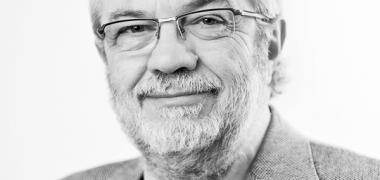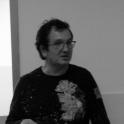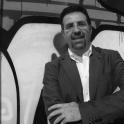We are celebrating the 10-year anniversary of Debats d’Educació by giving the educational community the opportunity to air its views

I am a Professor of Philosophy at the University of Girona. I have also been active in politics, as a member of the Spanish Chamber of Deputies, a Member of the Catalan Parliament, Deputy Mayor of Girona City Council, and Minister of Education and Universities in Pasqual Maragall’s last government.
The three things I’ve learned
ALL LIFE LONG, NOT ONLY DURING YOUR WORKING LIFE
Lifelong learning or education breaks the educational time barrier traditionally established either at the end of compulsory education or upon achievement of a professional qualification at any level. Now, the hypothesis is that learning should continue all your life. The idea that many people have of this learning is updating – often referred to as “recycling” – of a professional or employment-related nature: since changes in technology and production are taking place so quickly, it is thought that all workers, technicians and professionals, even the ablest with the highest qualifications, periodically need to update their knowledge and incorporate the advances that a great variety of technologies place at the disposal of the production system. This, however, would only justify learning during the period of your working life, whereas we are talking about “lifelong” learning. Beware, then, of this reductionism, which stems from the basic conceptual error of “living to work” rather than “working to live”.
THE HUMAN BRAIN, CAPACITY FOR IMPROVEMENT WITH THE EVER PRESENT GOAL OF A FULFILLED LIFE
Every responsible person can see that self-improvement is always possible and that the plasticity of the brain – undoubtedly spectacular during childhood, although it diminishes later on – can be maintained throughout our lives, as long as illnesses and serious accidents are avoided. Everyone, then, while they have the possibility of influencing the make-up of their brain in order to enjoy a fuller life, has at least the right and in many cases, increasingly, the duty to try to improve themselves. Since the learning objectives are countless in this world of ours with its wealth and diversity of stimuli, there is no doubt that our lifespan is too short for the learning possibilities we have. Remaining active and committed to one’s own lifelong learning is also a way of giving true value to the very experience of living. If life is not constantly accompanied by an attitude of wanting to learn for oneself, the experience of living becomes blind and sterile routine, a vulgar repetition of what has always been done and will continue to be done in the same way.
LEARNING THROUGHOUT THE LENGTH, BUT ABOVE ALL “THE BREADTH” OF LIFE
Beyond the periodic improvement of his or her productive capacity, every person has a right to the ongoing improvement of those capacities, skills or the approach towards the areas of life in which he or she is interested. A nation that has always done little to stimulate cultural learning in fields such as music, theatre, literature and the plastic arts, or even less to form habits of social and political participation, is in dire need of publicizing the idea that it is never too late. There is always time for cultural, artistic, social or political learning. The main objective of this learning throughout the length and “the breadth” of life would be to achieve fulfilment, understood in the sense of all its many multi-faceted values that the formal education system tends – erroneously – to reduce to the more strictly cognitive aspects of personality building. Ethical, socio-political, cultural and aesthetic values and a sensitivity to the arts and nature would feature strongly here.















 The texts published on this website are, unless otherwise indicated, covered by the Creative Commons Spain Attribution 3.0 licence. You may copy, distribute, transmit and adapt the work, provided you attribute it (authorship, journal name, publisher) in the manner specified by the author(s) or licensor(s). The full text of the licence can be consulted here:
The texts published on this website are, unless otherwise indicated, covered by the Creative Commons Spain Attribution 3.0 licence. You may copy, distribute, transmit and adapt the work, provided you attribute it (authorship, journal name, publisher) in the manner specified by the author(s) or licensor(s). The full text of the licence can be consulted here: